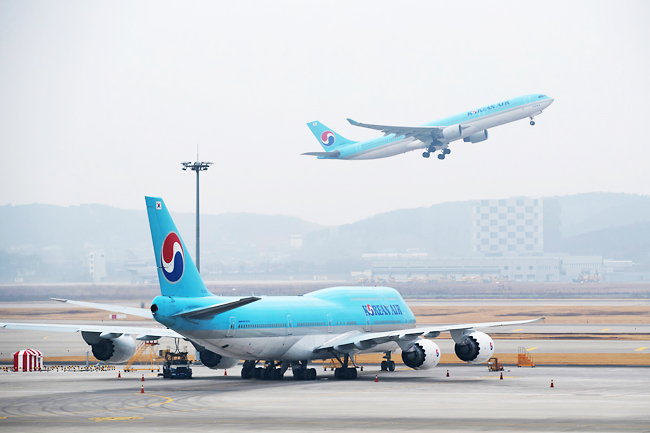SEOUL (AFP) – Korean Air said on Tuesday it “strictly manages” cosmic radiation exposure for its flight crew, after a landmark decision ruled an air steward’s cancer death was akin to an industrial accident.
The ruling by the state-run Korea Worker’s Compensation and Welfare Service – issued last month and sent to AFP yesterday – found the cancer death of a male flight attendant, who had flown for the flag-carrier for 25 years, resulted from cosmic radiation exposure.
Flight crews are exposed to higher levels of naturally occurring cosmic radiation as the shielding effect of the Earth’s atmosphere decreases at higher altitude. The attendant, identified by his surname Song, spent nearly 1,022 hours on board a plane each year with nearly half of his flights covering long-haul routes to the Americas and Europe.

Such routes expose flight crews to more cosmic radiation because they involve flying over the North Pole, where such radiation is higher due to Earth’s magnetic field.
Song was diagnosed with stage four stomach cancer in April 2021 and died a month later.
Korean Air declined comment on the panel’s decision, but denied any wrongdoing. The company limits the radiation exposure to “less than 6mSv a year”, it said, which is “a lot stricter than the legal maximum radiation exposure standard of up to 50mSv a year”.
While the panel was considering the case, the airline denied there was any correlation between the plaintiff’s cancer and cosmic radiation, saying that it limited annual radiation exposure to under 6mSv for its crews. But the panel rejected the airline’s claim, saying it was possible the plaintiff had been exposed to “more than 100mSv of accumulated radiation” and that the measuring method deployed by the airline could have downplayed the actual amount of radiation.






